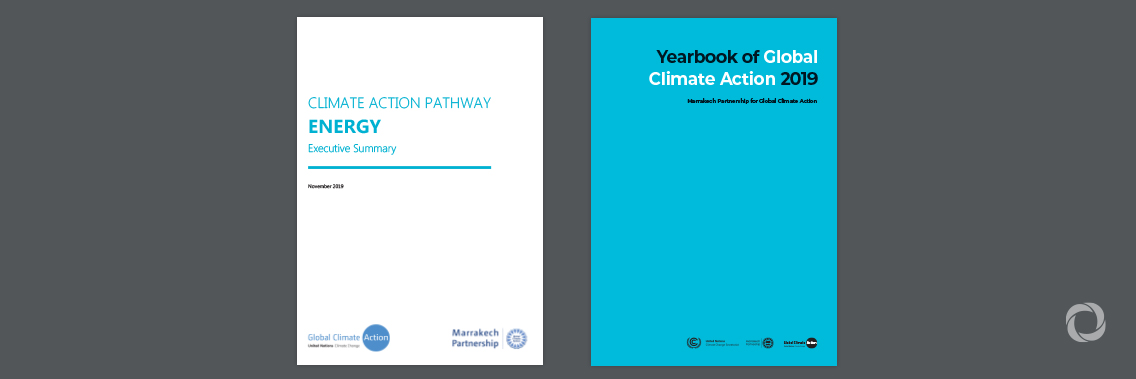Publications released by UN Climate Change shine a light on current climate action and lay down pathways to climate neutrality by mid-Century, required to meet the temperature goals of the Paris Agreement. The reports are part of the work of UN Climate Change with experts and civil society groups.
The Yearbook of Global Climate Action 2019 takes stock, highlighting climate action success stories and the need for conditions conducive to stepped-up climate action, while the Climate Action Pathways suggest transformational actions and milestones towards neutrality in key areas, such as energy, industry, transport, human settlements, water, land use, and resilience to the inevitable effects of climate change. The documents were developed in a collaborative effort with the coalitions and initiatives of the Marrakech Partnership for Global Climate Action, under the leadership of the High-Level Champions.
“The bottom line is that active participation by all of us—governments, businesses, investors, regions and more—is needed if we are to overcome the climate emergency we currently face,” said UN Climate Change Executive Secretary Patricia Espinosa.
The 2019 Yearbook and the Pathway documents are comprehensive references for negotiators as they prepare for the UN Climate Conference (COP 25) in Madrid in December. They are tools for all those looking for ways to incentivize climate-friendly action and draw economies and people towards ambitious climate action.
The Yearbook makes clear that all actors – government and non-governmental, public and private – need to urgently step up the pace of action if the world is to achieve the Paris targets and avoid the worst effects of climate change. The Yearbook calls on governments to:
- Increase implementation across all thematic areas to realize multiple benefits;
- Create the conditions needed for non-Party action;
- Continue and strengthen the Global Climate Action agenda within the UNFCCC process post- 2020;
- Align finance flows with finance needs, and;
- Strengthen the completeness and robustness of the reporting of results from climate action.
The Climate Action Pathways chart the longer-term sectoral vision for a 1.5-degree climate-resilient world and sets out actions needed to achieve that future. The Pathways, which will be updated and added to over time, present a forward-looking concrete roadmap and actions from 2020 to 2050 for different actors towards meeting the goals of the Paris Agreement.
Together, these tools aim to help catalyze climate action and support Parties to enhance ambition through collaboration with non-Party stakeholders.
Read and downloads reports: Yearbook of Global Climate Action 2019 and Climate Action Pathways
Original source: UNFCCC
Published on 25 November 2019

